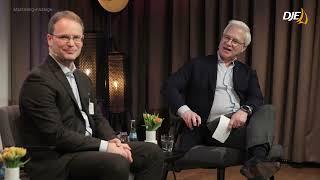| Is Switzerland ready to phase out nuclear power? Experts weigh in on the November 27 nationwide vote on the country’s nuclear plants. (SRF/swissinfo.ch)
Banning construction of nuclear power plants and limiting the use of existing ones to 45 years: that’s what the people’s initiative from the Green Party proposes. This would mean that the stations Beznau I and II (in canton Aargau) and Mühleberg (Bern) should shut down in 2017, Gösgen (Solothurn) in 2024 and Leibstadt (Aargau) in 2029. Opponents fear that replacing nuclear energy will result in increased imports from foreign coal-fired power plants. Centre-right senator Bernhard Luginbühl claims there’s not enough renewable energy available today to make up for the gap. For Luginbühl and for many others abandoning nuclear energy requires more time. Rolf Wüstenhagen researches future energy at the University of St Gallen. He says the arguments of the opponents are too simple since Switzerland already imports electricity, both nuclear as well as hydroelectric and solar power. Liberal Green parliamentarian Jürg Grossen is convinced that Switzerland can afford to give up nuclear energy now. He argues that the country already imports more electricity from foreign renewable sources than the Swiss nuclear power plants of Beznau 1 and 2 and Mühleberg produce together. Power suppliers Axpo and Alpiq have since released estimates of the compensation they would require should the power plants be shut down. For Alpiq, which controls 40% of shares in the Gösgen station and 32% in Leibstadt, that would amount to CHF2.5 billion ($2.53 billion). Axpo, which uses Beznau I and II, that would amount to CHF4.1 billion. For more articles, interviews and videos visit swissinfo.ch or subscribe to our YouTube channel: Website: http://www.swissinfo.ch |
Tags:









































